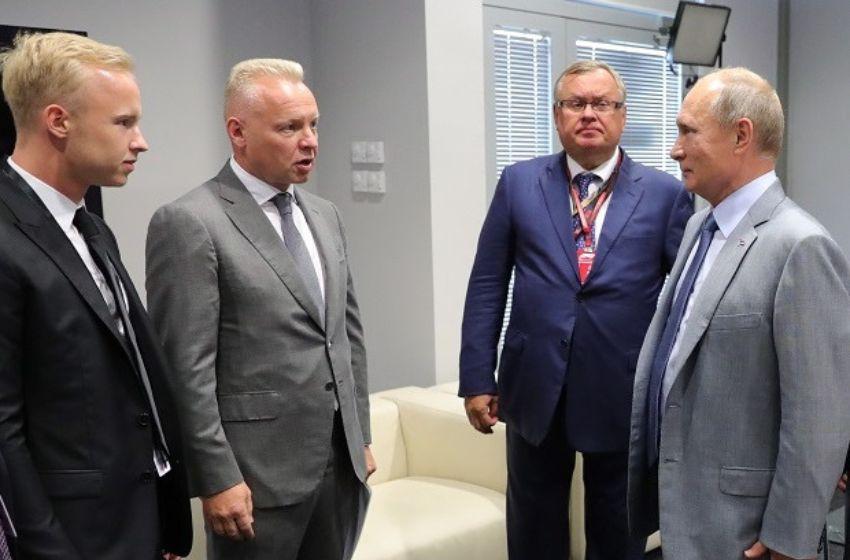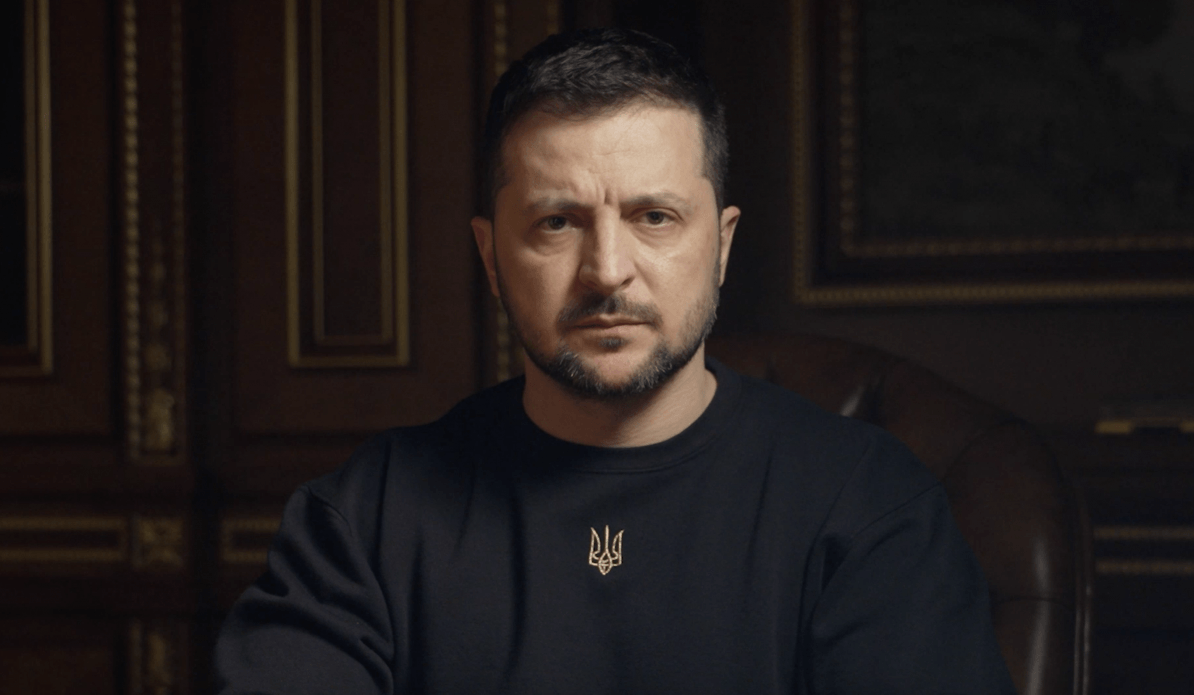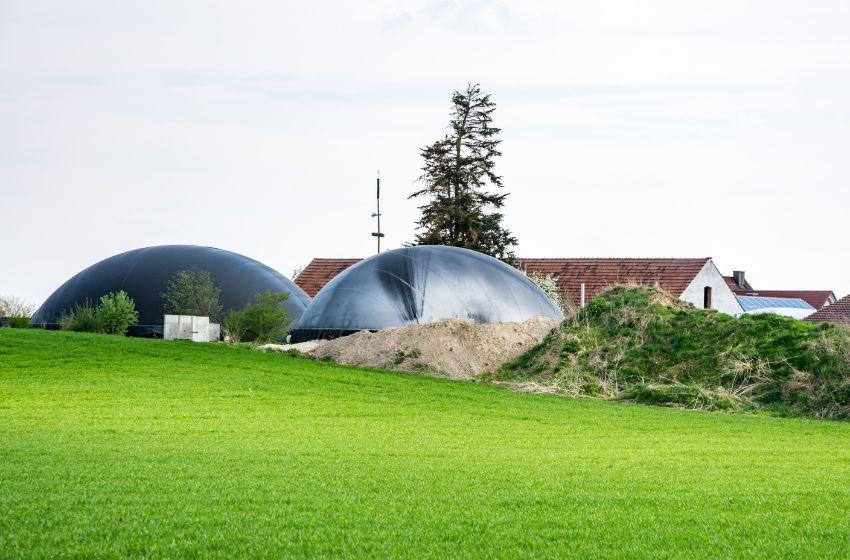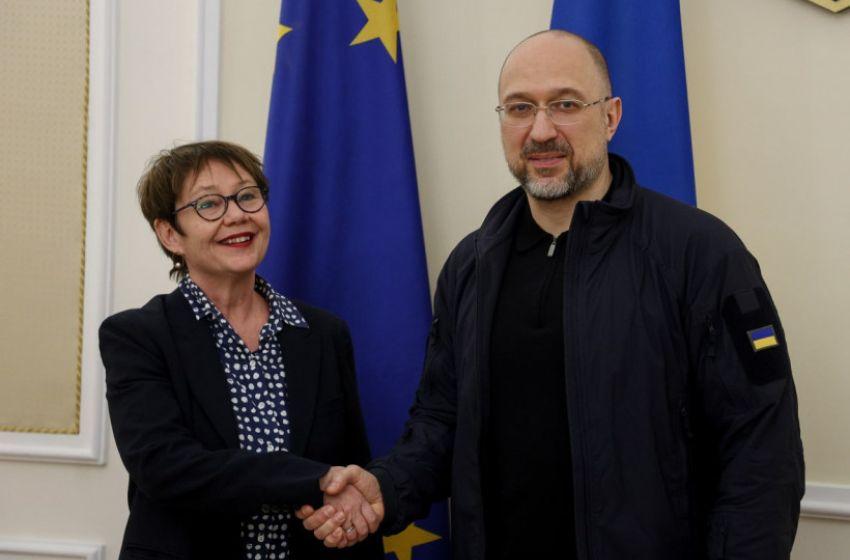Main — Business — Kremlin’s secret plot to reactivate the export of Russian ammonia through Ukraine, with the help of United Nations
BusinessKremlin’s secret plot to reactivate the export of Russian ammonia through Ukraine, with the help of United Nations

UN is negotiating a resumption of Russian ammonia exports through Ukraine. The deal would give Russia a good reason to stick to the Grain Export Corridor deal and let food and fertilizer shipments sail from Odessa ports.
Ammonia is a key ingredient in nitrate fertilizer. A pipeline transporting ammonia from Russia's Volga region to Ukraine's Black Sea port of Odessa was shut down when Russia invaded Ukraine on Feb. 24.
The pipeline from Russia to Odessa was designed to pump up to 2.5 million tonnes of ammonia per year. From Soviet times, ammonia travelled south-east along a 2,418-kilometer pipeline that crosses Ukraine for over a thousand from the Russian border to the Black Sea. From there the fertilizer reached the rest of the world by ship, until the outbreak of the war eight months ago.
Facilitating Russia's food and fertilizer exports is a central aspect of the deal brokered by the United Nations and Turkey on July 22 that restarted Ukraine's Black Sea grain and fertilizer shipments.
The UN plan is that ammonia produced by Russian fertilizer producer Uralchem be brought to the Russia-Ukraine border. There, it would be purchased by US commodities trader Trammo.
The absence from the market of ammonia formerly shipped through Ukraine has caused substantial hardship in countries dependent on that product. We believe that resumption of shipments will help to stabilize fertilizer prices worldwide and to avoid a global food crisis.
Ed Weiner, Chief Executive of Trammo
A few months earlier, the United States had given the green light to a series of transactions with Russia relating to fertilizers, food, seeds, as well as medical equipment and medicines with the aim of not placing the war in Ukraine on sectors already in crisis: also for this reason the European Union, in adopting the seventh package of sanctions against Russia, has also decided to avoid any measure that could lead to a decrease in food security in the world.
Moreover, the move of Uralchem, which announced a free supply of 25,000 tons of fertilizer to Africa, is a confirmation of the intention by the Russian company to be involved in the agreement.
Uralchem was founded by Dmitry Mazepin, a Russian oligarch and oligopolist of the fertilizer sector, is a pawn in the hands of Putin: he received him in the Kremlin shortly before the attack in Kyiv, indicating where to fix the prices of fertilizers. Moreover, Putin summoned him with another 37 oligarchs in the Kremlin on the day of the invasion. Consequently, Mazepin is among those who were sanctioned by the EU last March as part of the aftermath of the war in Ukraine.
In December 2021, Dmitry Mazepin rewrote his Cyprus-based companies Uralchem Holding and CI-Chemical Invest, controlling “Uralchem”, to Russian jurisdiction at special administrative district on Oktyabrsky Island of Kaliningrad Oblast.
Uralchem controls the world's largest producer of ammonia, Togliatti Azot (ToAz), based in Togliatti, in the Russian region of Samara. This nitrogen compound is a basic ingredient in fertilizers and before the war ToAz exported 2 million tons per year, for a turnover of about 2.4 billion.
The still unfinished portion of the agreements on the export of grain from Odesa concerns the Togliatti ammonia route. Now the UN, with the involvement of Secretary General Antonio Guterres, media between Moscow and Kyiv to reopen the ammonia route.
Ukraine and Russia are both major global grain and fertilizer exporters. The United Nations said the agreement on Russian and Ukrainian exports is needed to tackle a global food crisis that it said had been worsened by Russia's war in Ukraine, pushing some 47 million people into "acute hunger".
It is no coincidence that Mazepin has not been sanctioned by the United States. The goal of the underground negotiation is to increase supply and bring down the international price of fertilizers - which exploded with the war - in order to mitigate the food crisis in Africa. "Getting ammonia into the world is our priority," said Amir Abdulla, UN coordinator for the Black Sea Grain Initiative. In essence, it is a question of getting Kyiv to accept that Mazepin, returns to earn billions for himself and for the Russian regime through Ukrainian territory in the name of fighting hunger in the world.
"The UN is pursuing all efforts to allow for a positive outcome on Russian ammonia exports to international markets," said senior UN trade official Rebeca Grynspan, who leads the facilitation of Russian food and fertilizer exports. But she refused to give more details of the deal.
It is worth mentioning that Mazepin hadn't owned ToAz for some time, he took control of it with a raid just three months before the war. The former British controlling partners, the Bkit consortium, complained that their representatives were blocked by the Russian special police forces, the Omon, at the entrance of the shareholders' meeting, which voted to exclude them from the board in their absence. An appeal to the Dublin court is open against the raid on ToAz. But in the meantime, Mazepin has formally transferred control of the group to two close allies since it has been under sanctions.
This fertilizer deal fits into Putin's communication strategy of showing the world that European sanctions are responsible for hunger in Africa. No surprise that Russian President criticized the July deal openly, saying Ukraine was exporting food and fertilizer to the European Union and Turkey rather than to poor countries. The pact allowing Ukraine's exports is up for renewal in November.
Martin Griffith, UN Under-Secretary-General for Humanitarian Affairs and Emergency Relief Coordinator, said that Russian fertilizers are needed by global markets: “The world needs Russian food and fertilizer exports. The talks were not about easing sanctions, but about removing obstacles to exports. They are all part of the same package.”



















